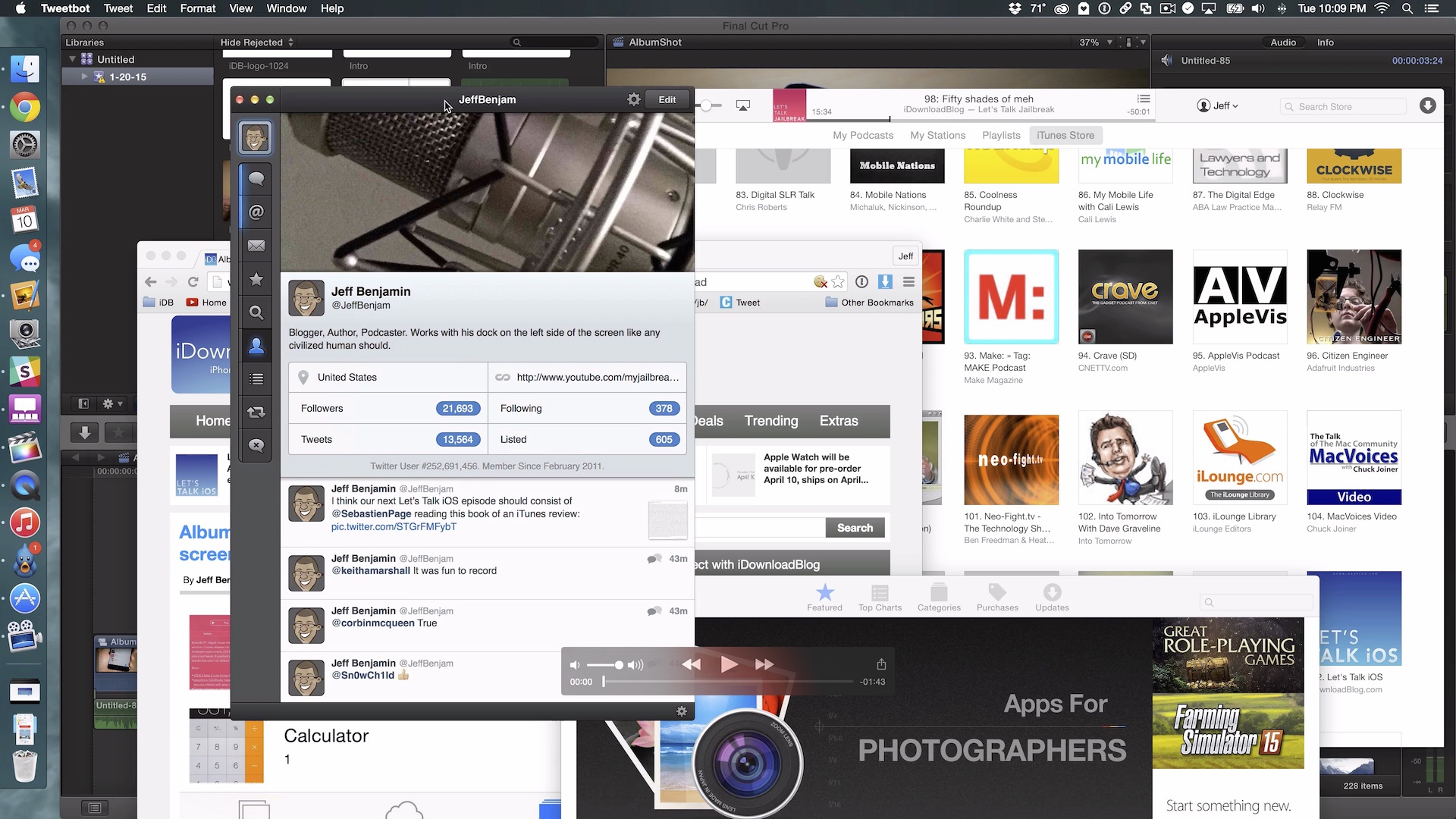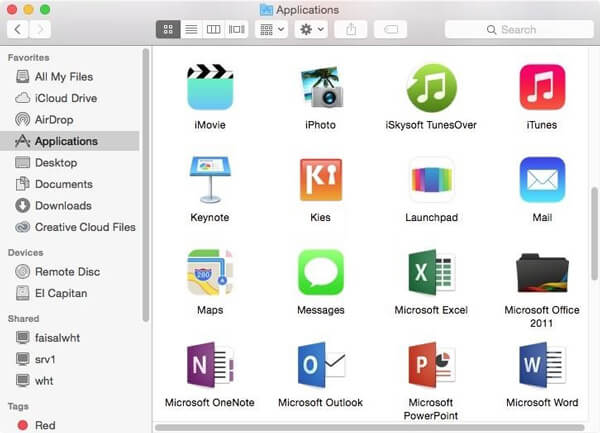Let’s face it. Everyone has a secret, and so does your Mac. Thousands of them are in the form of hidden files and folders stored in the ~/Library folder in your User folder. These files hold information like app preferences, etc.
But how can we view hidden files on macOS X?
There’s hope, and in this article, we will talk about ways to see all hidden files on Mac and make the Library folder visible.
What are Hidden Files on Mac?
Hidden files on Mac are a throwback to macOS’ Unix roots. Generally, files starting with “.” are hidden. Due to this, Mac doesn’t allow placing a ‘.’ at the beginning of a file name.
These hidden files contain data like preferences, application support files, privileges folders, and more.
- When you click on the Launchpad icon in the Dock you will see your apps and your widgets. Hold the Command key and click on any app — the apps will start shaking Click on the hovering X to delete any app you want. How to find hidden Applications. As a matter of fact, some of your apps don't show up in either Finder or Launchpad.
- How To Show All Files on the Mac. There are two ways to show the hidden files on your Mac. First, the hard way: Using the Terminal. 'Terminal' is a program that advanced users typically use. If you click Go in the apple menu bar (finder), and then you click Utilities, you will come to a folder that has the Terminal application.
Why are the files hidden on Mac?
This is to view all open application on mac and you can quit selectively any application. This is also the quick way to go to finder. Best of all, DCommander, Forklift, and CleanMyMac X apps mentioned above are all available for a free trial through Setapp, a collection of more than 150 macOS apps from top developers all over the world.
Due to several reasons, files and folders on Mac are hidden. They are listed as below:
- They contain crucial data important for working for macOS.
- If they are visible, your Mac might look cluttered.
- No reason for users to view them
How to View Hidden File on Mac?
Before you learn how to see hidden files on Mac, remember there are reasons for hiding files on Mac.
The information they contain is essential, and making any changes or deleting them can make Mac behave weirdly.
For example, if you want to view the ~/Library folder & delete application support files for uninstalled applications, consider using Disk Clean Pro. This nifty Mac optimizer and cleaner will remove all unwanted application support files. Just click via One Click Care.
To download Disk Clean Pro, click here.
This cleanup tool for Mac is available at Mac App Store and is thoroughly tested and trusted. Using it, you can clean junk files, system log files, cache files, partial download, organize files on Mac, and do a lot more.
To know more about this tool, read the complete review.
In addition to this, you can recover gigabytes of disk space and can get rid of not enough storage space.
However, if you are not satisfied with it and would like to view the hidden files Mac app. Here’s how you can see all files hidden on Mac.
Way 1: Mac Finder Showing Hidden Files
Follow the steps below to view hidden files in Finder on Mac:
- Open Finder window
- Now in the left bar, click the name of your Mac under ‘Devices.’
- Select and click the startup drive. By default, it reads as Macintosh HD.
- Next, press Command +Shift +.(period) key. You will now be able to see several files with “.”
- To hide them again, hold down Command + Shift +. (period).
Note: To unhide and see hidden files in the Documents or Applications folder, you can use the same key combination i.e., Command+Shift+.
However, if you know what file type you are looking for in the ~/Library folder, follow the steps below:
1. Open Finder, press the Alt key, and click Go.
2. Click Library to open, normally hidden, folder
You’ll now see the most cluttered Mac desktop. Most of the unhidden files are system files and autosaved Microsoft Word documents. This finder showing hidden files sometimes helps users find those files that they thought were lost forever.
Read Also: “Other” On Mac Storage And How To Remove It
Way 2: Unhide Files On Mac With Terminal Commands
Like the command prompt in Windows, we have a Terminal, command-line interface in Mac. Using it and a set of commands, you can easily show hidden files on Mojave and hide files. Unlike Finder, where you need to follow a series of complex instructions, using the Terminal command is easy.
If you know about Terminal and are conformable using it, here is the list of commands to show hidden files Mac app:
- Launch Terminal
- Here, copy-paste the following command
defaults write com.apple.Finder AppleShowAllFiles true [Press Return] killall Finder
Note: The parameter True shows hidden files, whereas when you change it to false, it will again hide the files.
The method you chose doesn’t matter because both will help view all hidden files. If you select a finder to show hidden files, you will have to follow complex steps. While using the Terminal command is simple, and it quickly helps with OS X show hidden files.
Moreover, using Terminal, you can show all hidden files or folders on your Mac. This is a great way to view password protected .rar on your desktop!
Read Also: Uninstaller for Mac to Remove Apps Completely
Way 3: View Hidden files using chflags hidden command on Mojave
However, if you want to see all hidden files on Mac follow the steps below:


1. Launch Terminal
2. Copy-paste the following command: chflags hidden
Note: Make sure there’s a space between the command and the parameter
3. Drag files or folders into the Terminal that you want to hide from Finder. You will now see the file and folder paths in Terminal.
4. To hide, press Return.
By using these simple sets of instructions, you can hide files. To view hidden files, change the parameter from nohidden. You will now see all the hidden files on Mac.
While using this method, always remember anyone who knows this trick can also use the same command to unhide files.
This is all using these simple methods; you can show hidden files on Mac. Furthermore, if your motive to see hidden files is to remove junk files, we have an easy way.
Cleaning Hidden Junk Files Automatically
Generally, Mac users look for ways to view hidden files because they want to recover some additional gigabytes. But if they can clean up these useless hidden files without much ado then?
You read it right using an excellent tool like Disk Clean Pro; you can quickly recover hard disk space and clean up your Mac.
To use this fantastic tool, follow the steps below:
1. Download & install Disk Clean Pro
2. Launch the app and click Start System Scan
3. Let the scan finish. You’ll now see all the junk files.

4. Hit Clean Now to get rid of this unwanted data.
Tada! This is it. Using these simple steps and Terminal commands, you can view hidden files on Mac. Moreover, you can show hidden files on Mac to your friend and be popular.
Read Also:Delete Downloaded Files And Folders
Frequently Asked Question
Q1. How Do I Manage Files On A Mac?
Files on Mac can be managed both manually and automatically. To manage files manually, select items by pressing and holding the Command key. Next, press the Control key > choose New Folder with Selection. That’s it. You can now place the files in the selected folder.
Alternatively, you can use Disk Clean Pro to organize and manage files. In addition to this, to arrange files on the desktop. Click desktop, choose view > Sort By, then choose from the list of options. You can now arrange the files.
Q2. How Do You Make Hidden Files Unhidden On A Mac?
The easiest way to unhide a file on Mac is to use the Terminal command. To do so, launch Terminal and run the following command: defaults write com.apple.finder AppleShowAllFiles TRUE killall Finder.
This way, you can see hidden files in Finder.
Additionally, you can also type chflags nohidden with a space between command and nohidden. You can now unhide a file or a folder.
Q3. Where Are Hidden Files On Mac?
How To Show Hidden Apps On Mac
In the Finder, open your Macintosh HD folder. Press Command+Shift+Dot. You will now be able to see hidden files.
How To View Hidden Apps On Mac
Responses